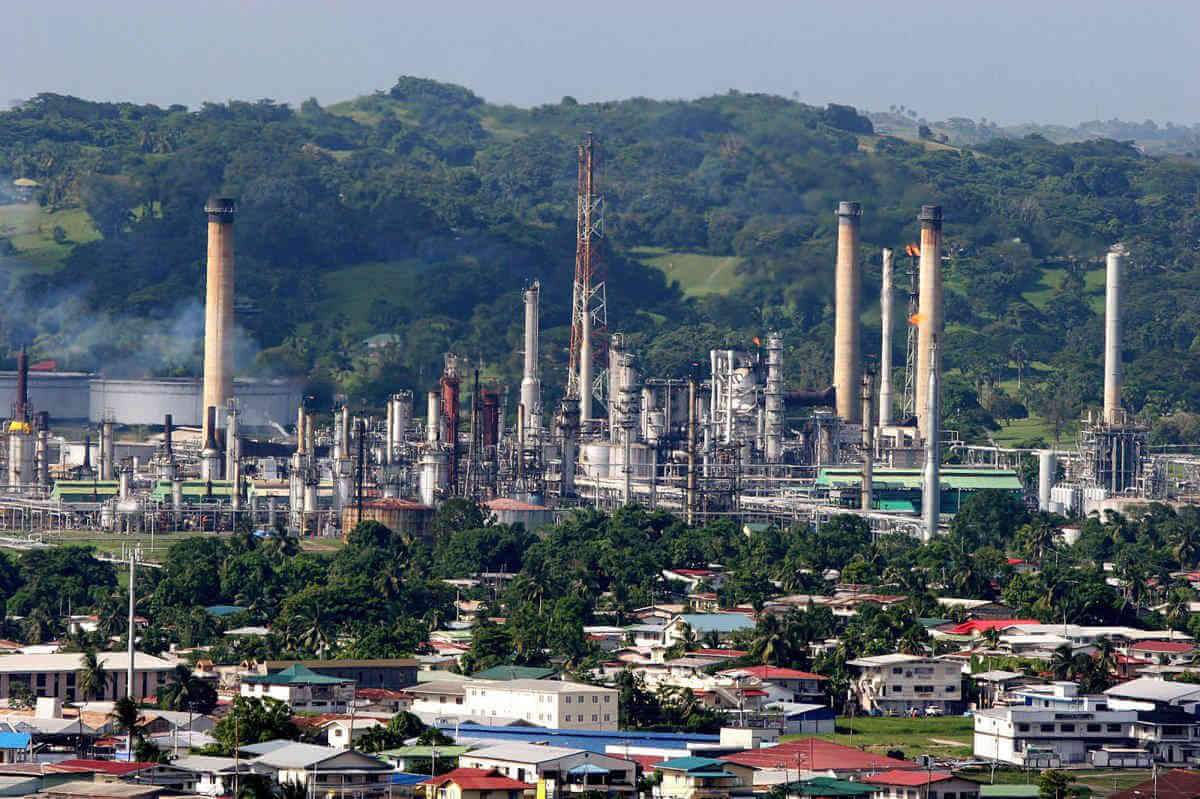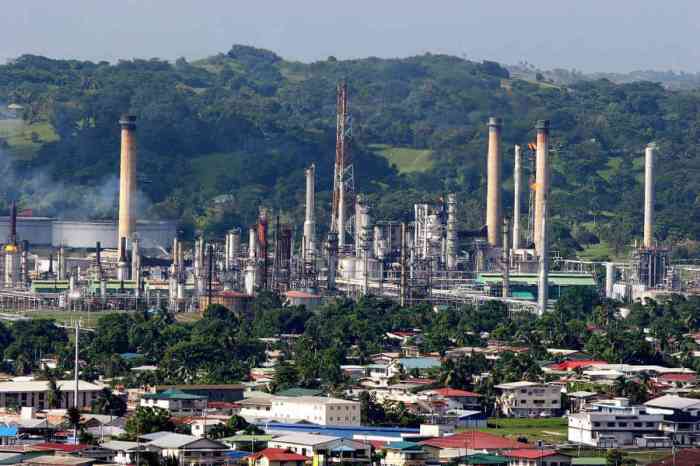With general elections just two years away, Trinidad’s governing People’s National Movement (PNM) has ordered the island’s largest oil refinery closed almost immediately, directly putting about 1800 workers on the breadline and triggering angst and anger among the country’s powerful labor unions.
Petrotrin Trinidad will soon cease refining the little oil Trinidad produces on the face of decades of debt, hundreds of millions of unpaid taxes to the state and aging equipment that long should have been replaced.
In recent months, authorities were hoping that the massive oil find in neighboring Guyana would have helped to keep the decades old refinery in business but lukewarm feedback from Georgetown and dwindling daily production of oil have put paid to the island hopes to such an extent that the very unpopular decision was made to cease production while a major reorganization takes place.
In its hey day, Trinidad has never produced more than 300,000 barrels of oil daily and appears to have larger reserves of gas rather than oil. Daily production recently has struggled to reach 40,000 barrels. Indications are that this figure could decline even more unless big new wells are found in a hurry. Neighboring Guyana, for example, plans to start production in late 2019 or early 2020 and by 2022 could be pumping up to 750,000 barrels daily. Experts say the mixed signals from Guyana are part of the reasons for the closure and planned restructuring.
As the situation stands now, the plan is to retire about 1000 workers to make the money losing giant much leaner and efficient in the wake of $1.2 billion in losses in recent years, $2 billion in debt and about $500 million in taxes and royalties owned to state revenue according to the Express Newspaper.
Prime Minister Keith Rowley who is now under severe pressure from labor, civil society and the political opposition, had described Petrotrin as “an albatross around the necks” of the country as it was bleeding cash by the millions daily as oil production declines and as new clients have failed to show up.
To survive and prosper, the company needs about $4 billion in cash to clear debts and restructure. This would include severance to workers officials say.
If nothing else, PM Rowley has the support of the energy chamber in Port of Spain as its leaders have also complained about its inefficiency, high debts and apparent inability to come off the floor.
Chief Executive Thackeray Driver was quoted as saying that “we understand the economics behind the decision. It’s obviously a very sad day. It’s a very tough decision that had to be made.”
For his part, Oilfield Workers Union boss Ancel Roget suggested that the PNM will endure an”incalculable political price to be paid and we will ensure that, that political debt is paid when the time comes.”
Unpaid taxes, royalties and debts apart, Petrotrin had been dogged by decades of credible allegations of widespread corruption and massive overstating. Because it is always a political and labor proverbial hot potato, successive governments have avoided dealing with it head on but declining daily oil production and new refining clients being scarce, officials have decided that it is time to act to stop the bleeding.
The union is expected to stage several industrial protest demonstrations in the coming weeks with leader Roget more than hinting that the dismissed workers will know how to vote come September 2020 when elections are called.
Company Chair Wilfred Espinet said that “with the termination of the refining operations and the redesign of exploration and production, Petrotrin will now be able to independently finance all of its debt and become a sustainable business. Petrotrin is no longer producing enough oil to operate the Pointe-a-Pierre refinery efficiently: We are producing approximately 40,000 barrels of oil a day and the refinery operates at a capacity of 140,000 barrels a day, so we have to go to the market to buy about 100,000 barrels of oil to make up the shortfall. This results in a net loss in foreign exchange.”
The refining of oil will be phased out and the company will import the refined products (gasoline, diesel, aviation fuels, etc.) that the country needs — approximately 25,000 barrels of oil equivalent a day. All of the company’s oil will be exported.
Espinet said, “Our goal is for Petrotrin be an internationally competitive and sustainably profitable leader in the local energy sector; and an employer of choice, that is a source of national pride.”
The period of transition will begin on Oct. 1, 2018.
According to the company, the board of directors is taking all requisite steps to facilitate a smooth and efficient period of transition with safety and the security of the country’s fuel supply being its two priorities.
Petrotrin will be meeting with all of its stakeholders during the coming weeks to discuss how the proposed changes may affect them.
“We had a continued programme of looking at all sorts of ways to make this thing work. We came to the conclusion that if we wanted to be able to pay back the debt and if we wanted to be able to have a profitable company that could be sustained over time, we would have to take out what was the cancer of the operation and that would have been the refining and marketing,” said Espinet.




















